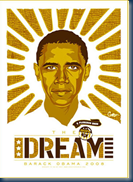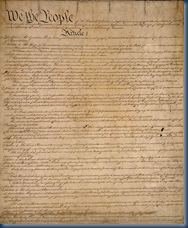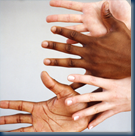This post started out as something else and evolved as I thought through it. I’m still a little surprised at my conclusion but I think it’s the right one. This is long so I’ve split it into two posts. The second post will have my conclusion and what I’m planning on voting.
 As someone who has spent a lot of time thinking about and figuring out how to communicate, I think words are important. Words are symbols that communicate commonly shared meaning and ideas. Words mean what they mean because we agree they do, and they carry certain connotations/things with them. This is why some words are considered inappropriate to say, like the n-word. Words are powerful. When it comes to marriage, I think the word should be reserved for what marriage has historically been - a relationship between a man and a woman.
As someone who has spent a lot of time thinking about and figuring out how to communicate, I think words are important. Words are symbols that communicate commonly shared meaning and ideas. Words mean what they mean because we agree they do, and they carry certain connotations/things with them. This is why some words are considered inappropriate to say, like the n-word. Words are powerful. When it comes to marriage, I think the word should be reserved for what marriage has historically been - a relationship between a man and a woman.
This isn't based in religion or bigotry. In fact I believe the insistence on using the term "marriage" for gay marriage is an example of cultural intolerance and insensitivity, which are generally considered cardinal sins by those who call themselves progressive. Let me see if I can explain it this way with a hypothetical scenario. Given the time and energy I have this is the best I could do, as inadequate as it is.
Let's say there's a group of people who do this particular dance. The dance requires three people, and it involves certain steps. This dance is a big part of their culture and it tells the story of their people. Children are taught about the dance from a young age, and most children take it up when they grow older. Sometimes the people mess up the steps, sometimes they screw up the dance and quit in the middle of it - but it always has three people. That's what the dance is. A new group of people come in and they hear about the dance. They like the dance and think it's cool, but instead of 3 people they want to do the dance with two. This means some of the steps change, and the story that's communicated by the dance changes - but the new group likes to do the dance and thinks it's fun. They're not really doing the same dance - but they're doing a dance that sort of looks like the other dance, but it's different and communicates something different.
The original group of people have always called their dance "Jaje." To them, "Jaje" carries with it meaning and it's something that has been a cornerstone of their culture for a long time. They would admit they haven't always done it right and sometimes they mess up, but they still value it and the story it tells. The new group wants to call their dance by the same name. They like the fact that Jaje is a respected and honored tradition - and while they don't want to dance the Jaje, they want to do a dance and they want everyone else to call it Jaje. This new dance is different from the historic, traditional Jaje but the new group still thinks they should have the right to be considered equal even if their dance is different. The original group suggests the new group call their dance something else, but the new group says that's hate and discrimination. The old group says they are trying to hold on to their traditions and culture, and "Jaje" is part of that. The new group says that times have changed, and Jaje doesn't mean that anymore; besides, if the original group cared about Jaje so much they'd never mess the steps up or quit dancing in the middle of it.
I think any anthropologist looking at this scenario would see the new group as overtaking the culture of the old group. The old group would necessarily feel threatened, and while they can still do their Jaje dance, it seems like a bit of a jerk move by the new group to insist their new, different, inspired-by-the-original-Jaje dance be called the same thing even though it isn't the same thing. I'm sure if Americans went over to some other country and started co-opting their cultural traditions we'd be considered "ugly Americans." I obviously use this as an analogue to the gay marriage movement of today.
 I think gays should enjoy all the same rights as heterosexual couples. The government should not discriminate based on sexual orientation when it comes to the benefits of domestic partnerships. Truth be told, I would be happiest with the government getting out of the "marriage" business in the first place. I wish the government could just have "domestic partnerships" that bestow the legal benefits of marriage, and both hetero and gay couples would apply for them. The government should not be in the marriage business at all. This is where the complexity comes in. More on this with my next post, which will complete my thoughts on Prop 8 and tell you my vote.
I think gays should enjoy all the same rights as heterosexual couples. The government should not discriminate based on sexual orientation when it comes to the benefits of domestic partnerships. Truth be told, I would be happiest with the government getting out of the "marriage" business in the first place. I wish the government could just have "domestic partnerships" that bestow the legal benefits of marriage, and both hetero and gay couples would apply for them. The government should not be in the marriage business at all. This is where the complexity comes in. More on this with my next post, which will complete my thoughts on Prop 8 and tell you my vote.
 Check this out. This study shows that the media has portrayed McCain “in a substantially negative [light]…coverage of McCain has been heavily unfavorable – and has become more so over time.” In case you want to dismiss the study and say it’s biased, there’s a link to the study itself where you can read it for yourself. This isn’t a big surprise to anybody who’s been paying attention. I’m not adding my voice to the chorus of “THE LIE-BERAL MEDIA BIAS” but it’s sure seemed to me that Obama has been getting great treatment in comparison to McCain.
Check this out. This study shows that the media has portrayed McCain “in a substantially negative [light]…coverage of McCain has been heavily unfavorable – and has become more so over time.” In case you want to dismiss the study and say it’s biased, there’s a link to the study itself where you can read it for yourself. This isn’t a big surprise to anybody who’s been paying attention. I’m not adding my voice to the chorus of “THE LIE-BERAL MEDIA BIAS” but it’s sure seemed to me that Obama has been getting great treatment in comparison to McCain. The other day I saw a piece on CNN that was “checking the truth” of claims made by the candidates. First they looked at McCain saying that Obama wanted to “spread the wealth around” a la his conversation with Joe the Plumber. They deemed McCain’s statement that Obama wanted to spread the wealth “misleading,” and went on to say that was just one thing Obama said in a five minute conversation with Joe the Plumber. They then looked at something Obama said about McCain and deemed it “True, but incomplete.” Their reasoning? Exactly the same as they used with what McCain said – Obama left some stuff out of what McCain had said.
The other day I saw a piece on CNN that was “checking the truth” of claims made by the candidates. First they looked at McCain saying that Obama wanted to “spread the wealth around” a la his conversation with Joe the Plumber. They deemed McCain’s statement that Obama wanted to spread the wealth “misleading,” and went on to say that was just one thing Obama said in a five minute conversation with Joe the Plumber. They then looked at something Obama said about McCain and deemed it “True, but incomplete.” Their reasoning? Exactly the same as they used with what McCain said – Obama left some stuff out of what McCain had said.







 I decided to combine these two into one post because they pretty much deal with the same issue – renewable energy and how to get it. With the increase of gas prices (which now seems like a small problem compared to the larger economic crisis) these two issues got on the ballot and are an attempt to move California in the direction of renewable energy. Here they are:
I decided to combine these two into one post because they pretty much deal with the same issue – renewable energy and how to get it. With the increase of gas prices (which now seems like a small problem compared to the larger economic crisis) these two issues got on the ballot and are an attempt to move California in the direction of renewable energy. Here they are:







